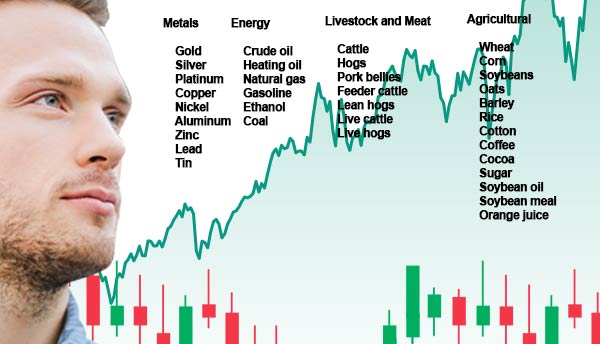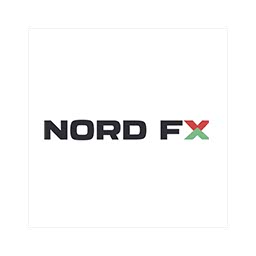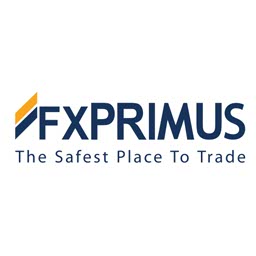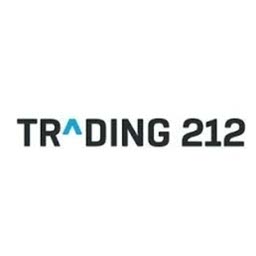Commodity Trading Brokers
In the landscape of financial investments, commodity trading stands as a cornerstone, offering opportunities to hedge against risks and reap substantial benefits trading commodities like natural gas, gold, silver and much more. However, navigating through the intricate pathways of commodity markets requires adept trading tools; a role often fulfilled by commodity trading brokers. We shed light on the critical role of these commodity brokers play while researching transparency, available commodities, trading fees, customer service and withdrawal options offered by commodity brokers in their operations. This article unravels the world of commodity trading brokers, equipping readers with the knowledge to safeguard their interests and foster informed decision-making in their commodity trading endeavors.
Commodity Trading Brokers Table of Contents
- Commodity Brokers
- What is a Commodity Broker, and What Services Do They Offer?
- How Do Commodity Brokers Facilitate Trading in Commodity Markets?
- What Are the Qualifications and Licensing Requirements for Commodity Brokers?
- What Types of Commodities Can Be Traded Through a Commodity Broker?
- List of Tradable Commodities on Financial Markets
- Metals
- Energy
- Livestock and Meat
- Agricultural
- Other
- How Do Commodity Brokers Execute Trades on Behalf of Their Clients?
- What Are the Fees and Commissions Associated with Using a Commodity Broker?
- How to Do Commodity Brokers Handle Margin and Leverage in Commodity Trading?
- What Risk Management Strategies Do Commodity Brokers Employ?
- How Do Commodity Brokers Stay Updated on Market Trends and Developments?
- What Role Do Commodity Brokers Play in the Physical Delivery of Commodities?
- How Do Commodity Brokers Assist Clients in Developing Trading Strategies?
- Commodity Brokers Verdict
- Commodity Trading Brokers List Compared

Commodity Brokers
Commodity brokers play a vital role in financial trading, serving as negotiators between buyers and sellers in the commodities market. These experienced brokers conduct business on various trading platforms, including online platforms, and facilitate the buying and selling of a wide range of commodities. Whether it's starting to trade commodities or futures, commodity brokers provide the necessary expertise and support to navigate these complex financial markets. They introduce brokers, assist new customers in entering the market, and offer retail CFD accounts for traders. With their knowledge of financial contracts, derivatives, and underlying assets, commodity brokers are critical players in connecting traders with exchanges and providing access to different asset classes. Let's explore the world of commodity brokers and the services they offer.
What is a Commodity Broker, and What Services Do They Offer?
Commodity brokers act as intermediaries in the commodities market, facilitating the buying and selling of various commodities such as agricultural products, industrial metals, crude oil, natural gas, and precious metals. They offer a range of services to their clients, including:
-
Trade Execution: Commodity brokers execute trades on behalf of their clients, ensuring efficient and timely transactions at the best available prices in the market.
-
Market Research and Analysis: Commodity brokers stay abreast of market trends and developments, providing clients with valuable insights and analysis to make informed trading decisions.
-
Risk Management: Brokers assist clients in implementing risk management strategies to protect their investments from market volatility and unexpected events.
-
Account Management: Commodity brokers help clients manage their trading accounts, guiding account types, funding options, and account maintenance.
-
Access to Trading Platforms: They provide access to trading platforms where clients can monitor market prices, place trades, and access trading tools for technical analysis and risk assessment.
-
Commodity Education and Advice: Brokers offer clients educational resources and trading advice, helping them understand the dynamics of commodity markets and develop effective trading strategies.
How Do Commodity Brokers Facilitate Trading in Commodity Markets?
Commodity brokers facilitate commodity futures and market trading as intermediaries between buyers and sellers. They enable clients to trade commodities by executing buy or sell orders on their behalf. Brokers have direct access to exchanges where commodities are traded and utilize their expertise and market knowledge to ensure efficient and reliable trade execution. They provide clients with trading platforms with real-time market data, order placement, and trade monitoring capabilities.
Commodity brokers use their industry connections and networks to match buyers and sellers, ensuring liquidity in the market. They assist clients in navigating the complexities of commodity trading, such as understanding contract specifications, margin requirements, and settlement procedures. By leveraging their experience and market insights, commodity brokers streamline the trading process, enhance market access for investors, and facilitate seamless client transactions.
What Are the Qualifications and Licensing Requirements for Commodity Brokers?
Individuals must meet certain qualifications and obtain licenses to become commodity brokers trading futures only. The specific requirements vary by jurisdiction, but familiar qualifications and licensing include the following:
-
Educational Background: While not mandatory, a background in finance, economics, or related fields can benefit aspiring commodity brokers.
-
Registration: Individuals must register with the relevant regulatory authorities, such as the National Futures Association (NFA) in the United States, to conduct business as commodity brokers.
-
Examinations: Prospective brokers often need to pass examinations, such as the Series 3 exam in the United States, to demonstrate their knowledge of commodity trading regulations and practices.
-
Experience: Some jurisdictions may require a minimum level of industry experience or on-the-job training to become a licensed commodity broker.
-
Continuing Education: Commodity brokers must engage in ongoing professional maturing to stay updated on industry regulations, market trends, and trading practices.
It is essential for individuals interested in becoming commodity brokers to research and comply with the specific licensing requirements of their respective jurisdictions.
What Types of Commodities Can Be Traded Through a Commodity Broker?
Commodity brokers facilitate trading various commodities across various asset classes. These include:
-
Agricultural Products: Commodity brokers enable clients to trade agricultural commodities, such as grains (wheat, corn, soybeans), livestock (cattle, hogs), and soft commodities (coffee, cocoa, sugar).
-
Industrial Metals: Clients can trade industrial metals like copper, aluminium, nickel, and zinc through commodity brokers.
-
Energy Commodities: Commodity brokers facilitate the trading of energy commodities such as crude oil, natural gas, heating oil, and gasoline.
-
Precious Metals: Brokers provide access to precious metals, for example, gold, silver, platinum, and palladium, allowing clients to trade these assets.
-
Other Commodities: Commodity brokers may also offer the trading of other commodities such as natural resources (timber, water), environmental commodities (carbon credits), and more.
By providing access to diverse commodities, brokers allow clients to create diversified portfolios and participate in various sectors of the commodities market based on their investment strategies and preferences.
List of Tradable Commodities on Financial Markets

Metals
- Gold
- Silver
- Platinum
- Copper
- Nickel
- Aluminum
- Zinc
- Lead
- Tin
Energy
- Crude oil
- Heating oil
- Natural gas
- Gasoline
- Ethanol
- Coal
Livestock and Meat
- Cattle
- Hogs
- Pork bellies
- Feeder cattle
- Lean hogs
- Live cattle
- Live hogs
Agricultural
- Wheat
- Corn
- Soybeans
- Oats
- Barley
- Rice
- Cotton
- Coffee
- Cocoa
- Sugar
- Soybean oil
- Soybean meal
- Frozen concentrated orange juice
Other
- Electricity
- Emissions credits
- Weather derivatives
- Freight indexes
How Do Commodity Brokers Execute Trades on Behalf of Their Clients?
Commodity brokers execute trades on behalf of their clients by utilizing their market expertise, industry connections, and trading platforms. The process for commodity trades typically involves the following steps:
-
Order Placement: Clients communicate their buy or sell orders to the commodity broker either through phone, email, or electronically via the trading platform.
-
Market Analysis: Commodity brokers analyze the market conditions, including current prices, trends, and other relevant factors, to assess the best execution strategy for the client's order.
-
Trade Execution: Brokers enter the client's order into the trading platform or contact the appropriate exchange to execute the trade at the prevailing market price.
-
Confirmation and Settlement: Once the trade is executed, brokers provide clients with trade confirmations detailing the transaction, including price, quantity, and associated fees. They also handle the settlement process, ensuring the trade is cleared and the commodities or funds are delivered to the appropriate parties.
-
Trade Monitoring and Reporting: Commodity brokers continuously monitor the trades on behalf of their clients, providing regular updates and reports on trade status, market performance, and account activity.
By handling the complex execution process, online commodity brokers can allow clients to focus on their trading strategies while ensuring timely and efficient trade execution in the commodities market.
What Are the Fees and Commissions Associated with Using a Commodity Broker?
Commodity brokers charge fees and commissions for their services, which may vary depending on several factors, including the type of commodity being traded, the volume of trades, the commodities broker's fee structure, and additional services provided. Standard fees and commissions associated with using a commodity broker include:
-
Brokerage Fees: Commodity brokers charge a commission based on the value of each executed trade. The commission can be a fixed amount per contract or a percentage of the trade value.
-
Exchange and Clearing Fees: Commodity exchanges and clearinghouses charge fees for trade execution, clearing, and settlement. These fees are typically passed on to the clients by the commodity broker.
-
Market Data Fees: Brokers may charge fees for access to real-time market data, news, and research reports, which are essential for informed trading decisions.
-
Account Maintenance Fees: Some brokers impose account maintenance fees, such as monthly or annual charges, to administer and manage clients' trading accounts.
-
Other Service Charges: Additional services provided by brokers, such as research reports, personalized trading advice, or premium trading tools, may incur additional fees.
It is vital for clients to carefully review the fee structure of a commodity broker or brokerage firm before engaging their services and consider the overall cost with the desired level of service and trading volume.
How to Do Commodity Brokers Handle Margin and Leverage in Commodity Trading?
Commodity brokers are critical in managing margins and leverage in commodity trading. Margin refers to the portion of the trade value of a futures contract that clients must deposit as collateral. At the same time, leverage allows clients to trade more prominent positions than their deposited margin.
Commodity brokers handle margin and leverage by:
-
Margin Requirements: Brokers establish margin requirements based on regulatory guidelines and exchange rules. They inform clients about the minimum margin levels necessary to open and maintain positions in different commodities.
-
Leverage Ratios: Commodity brokers determine the maximum leverage ratio they are willing to offer to clients. Leverage ratios vary based on the commodity traded and the client's account type.
-
Margin Calls: Brokers closely monitor clients' accounts and issue margin calls when the account equity falls below a specified threshold. Margin calls require clients to deposit additional funds to meet the margin requirements or reduce their position size.
-
Risk Management: Commodity brokers educate clients about the risks of leveraged trading and provide risk management tools and strategies. These may include stop-loss orders, limit orders, or other risk mitigation techniques to help clients manage their exposure.
By implementing strict guidelines and monitoring margin requirements, commodity brokers ensure clients adhere to appropriate risk management practices when using commodity contracts and engaging in leveraged commodity trading.
What Risk Management Strategies Do Commodity Brokers Employ?
Commodity brokers employ various risk management strategies to help clients navigate the volatile nature of commodity markets and protect their investments. These strategies include:
-
Diversification: Brokers advise clients to diversify their portfolios by trading various commodities across different sectors. Diversification helps minimize the impact of price fluctuations in any single commodity.
-
Stop-Loss Orders: Commodity brokers recommend using stop-loss orders, which automatically trigger a market order to close a position when the price reaches a predetermined level. Stop-loss orders help limit potential losses.
-
Limit Orders: Brokers encourage clients to utilize limit orders to specify the maximum price they are willing to buy or sell a commodity. It allows clients to control their entry and exit points in the market.
-
Risk Assessment: Commodity brokers assist clients in assessing and understanding their risk tolerance, helping them align their trading strategies with their risk appetite.
-
Education and Analysis: Brokers provide clients with educational resources and analysis, including technical analysis and fundamental research, to make informed trading decisions and manage risk effectively.
-
Regular Monitoring: Commodity brokers monitor clients' positions and market conditions, promptly notifying clients of significant market events or potential risks.
By implementing these risk management strategies, commodity brokers aim to minimize potential losses and protect clients' capital while maximizing their trading opportunities in the commodities market.
How Do Commodity Brokers Stay Updated on Market Trends and Developments?
Commodity brokers stay updated on market trends and developments through a variety of means, including:
-
Market Research: Commodity brokers conduct in-depth market research to analyze supply and demand factors, geopolitical events, weather patterns, and other relevant factors that impact commodity prices.
-
News and Information Sources: Brokers regularly monitor news outlets, financial publications, and industry reports to stay informed about market news, government policies, and other factors that can influence commodity prices.
-
Research Reports: Commodity brokers often produce research reports, providing clients with insights and analysis on specific commodities, market trends, and trading strategies.
-
Industry Conferences and Events: Brokers attend industry conferences, seminars, and webinars to network with experts, gain market insights, and stay updated on the latest developments in the commodities market.
-
Collaboration with Analysts and Experts: Commodity brokers may collaborate with market analysts, economists, and industry experts to gain important insights and perspectives on commodity markets.
-
Trading Platforms and Tools: Brokers leverage advanced trading platforms and tools that offer real-time and accurate market data, charts, and technical analysis indicators to monitor market trends and developments.
By actively engaging with these information sources, commodity brokers ensure they are well-informed and equipped to give clients up-to-date market analysis and trading recommendations.
What Role Do Commodity Brokers Play in the Physical Delivery of Commodities?
Commodity brokers facilitate trading in both physical and derivative markets, trading commodities. While physical delivery of commodities is not standard for most retail traders, commodity brokers play a vital role in facilitating the process for those who engage in physical commodity trading. Their role includes:
-
Contract Negotiation: Commodity brokers assist clients in negotiating contracts for purchasing or selling physical commodities, ensuring all parties agree on terms and conditions.
-
Logistics Management: Brokers coordinate and manage the logistical aspects of physical delivery, including transportation, warehousing, and inspection of commodities.
-
Quality and Quantity Assurance: Commodity brokers ensure that the quality and quantity of the delivered commodities meet the contractual specifications.
-
Risk Mitigation: Brokers help clients manage risks associated with physical delivery, such as price fluctuations, quality discrepancies, and logistical challenges.
While physical delivery is more prevalent in institutional and commercial commodity trading, commodity brokers and brokerage firms can provide valuable guidance and support to individual traders who wish to engage in physical delivery transactions.
How Do Commodity Brokers Assist Clients in Developing Trading Strategies?
Commodity brokers play a significant role in commodity trading advisors, assisting clients in developing effective trading strategies tailored to their individual goals and risk appetite. Their support includes:
-
Market Analysis: Commodity brokers provide clients with market analysis and insights to help them understand the dynamics of commodity markets and identify potential trading opportunities.
-
Risk Assessment: Brokers assist clients in assessing their risk tolerance and help them align their trading strategies accordingly. It includes determining appropriate position sizes, leverage levels, and risk management techniques.
-
Trading Education: Commodity brokers offer educational resources, webinars, and seminars to help clients learn about various trading strategies, technical analysis, and fundamental factors influencing commodity prices.
-
Backtesting and Simulation: Brokers may provide access to trading platforms that allow clients to backtest their trading methods using historical market data or simulate trades in real time to evaluate their performance.
-
Trading Recommendations: Experienced commodity brokers may offer trading recommendations based on their analysis and expertise. These recommendations can serve as valuable input for clients in making informed trading decisions.
By leveraging their market knowledge and expertise in futures trading, commodity brokers empower clients to develop strategies that align with their investment objectives and maximize their chances of success in commodity trading.
Commodity Brokers Verdict
Commodity brokers serve as essential intermediaries, connecting traders with the commodities market and facilitating the buying and selling of various assets. Whether they operate as introducing brokers, floor brokers, or online brokers, they play an important part in providing access to financial products and helping traders navigate the complexities of the market. From raw materials to financial derivatives, commodity brokers assist clients in understanding and trading different asset classes. With their expertise, traders can make informed decisions, manage risks, and seize opportunities in the ever-changing commodities market. Whether you're a beginner looking to start trading or an experienced trader seeking the best broker, commodity brokers offer valuable services and support to help traders achieve their financial goals.
Commodity Trading Brokers List Compared
| Featured Commodity Trading Brokers Trading Platform | Account Features | Trading Features |
|---|---|---|
| Used By: 180,000 Instruments Available: 232 Stocks Available: 2100 US Stocks: Yes UK Stocks: Yes German Stocks: Yes Japanese Stocks: Yes Indices: Yes Forex Pairs Available: 61 Major Forex Pairs: Yes Minor Forex Pairs: Yes Exotic Forex Pairs: Yes Minimum Deposit: 200 |
Platforms: MT4, MT5, Mirror Trader, ZuluTrade, Web Trader, cTrader, Mac Negative Balance Protection: Inactivity Fee: No Losses can exceed depositsVisit |
|
| Used By: 10,000 Instruments Available: 100 Stocks Available: 53 US Stocks: Yes UK Stocks: Yes German Stocks: Yes Japanese Stocks: Yes Indices: Yes Forex Pairs Available: 35 Major Forex Pairs: Yes Minor Forex Pairs: Yes Exotic Forex Pairs: Yes Minimum Deposit: 10 USD / 10 EUR |
Platforms: MT4, MT5, Mac, Web Trader, cTrader, Tablet & Mobile apps Negative Balance Protection: Inactivity Fee: No Losses can exceed depositsVisit |
|
| Used By: 200,000 Instruments Available: 1000 Stocks Available: 99 US Stocks: Yes UK Stocks: Yes German Stocks: Yes Japanese Stocks: Yes Indices: Yes Forex Pairs Available: 80 Major Forex Pairs: Yes Minor Forex Pairs: Yes Exotic Forex Pairs: Yes Minimum Deposit: 100 |
Platforms: Web Trader, MT4, MT5, AvaTradeGo, AvaOptions, Mac, Mobile Apps, ZuluTrade, DupliTrade, MQL5 Negative Balance Protection: Inactivity Fee: No 71% of retail CFD accounts lose moneyVisit |
|
| Used By: 10,000 Instruments Available: 100 Stocks Available: 10000 US Stocks: Yes UK Stocks: Yes German Stocks: Yes Japanese Stocks: Yes Indices: Yes Forex Pairs Available: 60 Major Forex Pairs: Yes Minor Forex Pairs: Yes Exotic Forex Pairs: Yes Minimum Deposit: 100 |
Platforms: MT4, MT5, IRESS, Mac, Web Trader, Tablet & Mobile apps Negative Balance Protection: Inactivity Fee: No Losses can exceed depositsVisit |
|
| Used By: 10,000 Instruments Available: 50 Stocks Available: 0 US Stocks: No UK Stocks: No German Stocks: No Japanese Stocks: No Indices: No Forex Pairs Available: 65 Major Forex Pairs: Yes Minor Forex Pairs: Yes Exotic Forex Pairs: Minimum Deposit: 10 |
Platforms: MT4, MT5, Tablet & Mobile apps Negative Balance Protection: Inactivity Fee: No Losses can exceed depositsVisit |
|
| Used By: 250,000 Instruments Available: 4000 Stocks Available: 1696 US Stocks: Yes UK Stocks: Yes German Stocks: Yes Japanese Stocks: Yes Indices: Yes Forex Pairs Available: 57 Major Forex Pairs: Yes Minor Forex Pairs: Yes Exotic Forex Pairs: Yes Minimum Deposit: 0 |
Platforms: MT4, Mirror Trader, Web Trader, Tablet & Mobile apps Negative Balance Protection: Inactivity Fee: Yes 76% - 83% of retail investor accounts lose money when trading CFDs with this provider. You should consider whether you understand how CFDs work and whether you can afford to take the high risk of losing your money. Visit |
|
| Used By: 89,000 Instruments Available: 100 Stocks Available: 60 US Stocks: No UK Stocks: No German Stocks: Yes Japanese Stocks: No Indices: Yes Forex Pairs Available: 70 Major Forex Pairs: Yes Minor Forex Pairs: Yes Exotic Forex Pairs: Yes Minimum Deposit: 200 |
Platforms: MT4, MT5, Mac, ZuluTrade, Web Trader, cTrader, Tablet & Mobile apps Negative Balance Protection: Inactivity Fee: Yes CFDs are complex instruments and come with a high risk of losing money rapidly due to leverage. Between 74-89 % of retail investor accounts lose money when trading CFDs. You should consider whether you understand how CFDs work and whether you can afford to take the high risk of losing your moneyVisit |
|
| Used By: 10,000,000 Instruments Available: 1000 Stocks Available: 160 US Stocks: Yes UK Stocks: Yes German Stocks: Yes Japanese Stocks: Yes Indices: Yes Forex Pairs Available: 55 Major Forex Pairs: Yes Minor Forex Pairs: Yes Exotic Forex Pairs: Yes Minimum Deposit: 5 |
Platforms: MT4, MT5, Mac, Web Trader, Tablet & Mobile apps Negative Balance Protection: Inactivity Fee: Yes CFDs are complex instruments and come with a high risk of losing money rapidly due to leverage. 77.74% of retail investor accounts lose money when trading CFDs with this provider. You should consider whether you understand how CFDs work and whether you can afford to take the high risk of losing your money.Visit |
|
| Used By: 20,000,000 Instruments Available: 2000 Stocks Available: 2042 US Stocks: Yes UK Stocks: Yes German Stocks: Yes Japanese Stocks: Yes Indices: Yes Forex Pairs Available: 50 Major Forex Pairs: Yes Minor Forex Pairs: Yes Exotic Forex Pairs: Yes Minimum Deposit: 50 |
Platforms: Web Trader, Tablet & Mobile apps Negative Balance Protection: Inactivity Fee: Yes 51% of retail investor accounts lose money when trading CFDs with this provider.Visit |
|
| Used By: 10,000 Instruments Available: 130 Stocks Available: 60 US Stocks: Yes UK Stocks: Yes German Stocks: No Japanese Stocks: No Indices: Yes Forex Pairs Available: 45 Major Forex Pairs: Yes Minor Forex Pairs: Yes Exotic Forex Pairs: Yes Minimum Deposit: 100 |
Platforms: MT4, Mac, Mirror Trader, Web Trader, Tablet & Mobile apps Negative Balance Protection: Inactivity Fee: No Losses can exceed depositsVisit |
|
| Used By: 142,500 Instruments Available: 200 Stocks Available: 52 US Stocks: Yes UK Stocks: Yes German Stocks: Yes Japanese Stocks: Yes Indices: Yes Forex Pairs Available: 150 Major Forex Pairs: Yes Minor Forex Pairs: Yes Exotic Forex Pairs: Yes Minimum Deposit: 100 |
Platforms: MT4, MT5, Web Trader, Tablet & Mobile apps Negative Balance Protection: Inactivity Fee: No Your capital is at riskVisit |
|
| Used By: 15,000,000 Instruments Available: 10000 Stocks Available: 1731 US Stocks: Yes UK Stocks: Yes German Stocks: Yes Japanese Stocks: Yes Indices: Yes Forex Pairs Available: 177 Major Forex Pairs: Yes Minor Forex Pairs: Yes Exotic Forex Pairs: Yes Minimum Deposit: 1 |
Platforms: Web Trader, Tablet & Mobile apps Negative Balance Protection: Inactivity Fee: No CFDs are complex instruments and come with a high risk of losing money rapidly due to leverage. 76% of retail investor accounts lose money when trading CFDs with this provider. You should consider whether you understand how CFDs work and whether you can afford to take the high risk of losing your money.Visit |
|
| Used By: 10,000 Instruments Available: 148 Stocks Available: 64 US Stocks: Yes UK Stocks: Yes German Stocks: Yes Japanese Stocks: Yes Indices: Yes Forex Pairs Available: 40 Major Forex Pairs: Yes Minor Forex Pairs: Yes Exotic Forex Pairs: Yes Minimum Deposit: $100 |
Platforms: MT4, MT5, Mac, Web Trader, Tablet & Mobile apps Negative Balance Protection: Inactivity Fee: No Losses can exceed depositsVisit |
|
| Used By: 10,000 Instruments Available: 15000 Stocks Available: 1000 US Stocks: Yes UK Stocks: Yes German Stocks: Yes Japanese Stocks: Yes Indices: Yes Forex Pairs Available: 55 Major Forex Pairs: Yes Minor Forex Pairs: Yes Exotic Forex Pairs: Yes Minimum Deposit: 1 |
Platforms: Web Trader, Tablet & Mobile apps Negative Balance Protection: Inactivity Fee: No Losses can exceed depositsVisit |
|
| Used By: 300,000 Instruments Available: 100 Stocks Available: 0 US Stocks: Yes UK Stocks: Yes German Stocks: Yes Japanese Stocks: Yes Indices: Yes Forex Pairs Available: 150 Major Forex Pairs: Yes Minor Forex Pairs: Yes Exotic Forex Pairs: Yes Minimum Deposit: 1000 |
Platforms: MT4, MT5, ZuluTrade, Web Trader, Tablet & Mobile apps Negative Balance Protection: Inactivity Fee: No Losses can exceed depositsVisit |
Best Commodity Trading Brokers Commodity Trading Brokers Reviews
Read our details broker Commodity Trading Brokers Commodity Trading Brokers reviews, you will find something useful if you are shortlisting a Commodity Trading Brokers Commodity Trading Brokers and trading platform.
- IC Markets Review (read our in depth reviews)
- Roboforex Review (read our in depth reviews)
- AvaTrade Review (read our in depth reviews)
- FP Markets Review (read our in depth reviews)
- NordFX Review (read our in depth reviews)
- XTB Review (read our in depth reviews)
- Pepperstone Review (read our in depth reviews)
- XM Review (read our in depth reviews)
- eToro Review (read our in depth reviews)
- FXPrimus Review (read our in depth reviews)
- easyMarkets Review (read our in depth reviews)
- Trading 212 Review (read our in depth reviews)
- Admiral Markets Review (read our in depth reviews)
- SpreadEx Review (read our in depth reviews)
- Swissquote Review (read our in depth reviews)
Commodity Trading Brokers Commodity Trading Brokers Alternatives
Read about and compare Commodity Trading Brokers Commodity Trading Brokers alternatives. We have indepth side by side comparisons to help you find Commodity Trading Brokers Commodity Trading Brokers related brokers.
- IC Markets Alternatives
- Roboforex Alternatives
- AvaTrade Alternatives
- FP Markets Alternatives
- NordFX Alternatives
- XTB Alternatives
- Pepperstone Alternatives
- XM Alternatives
- eToro Alternatives
- FXPrimus Alternatives
- easyMarkets Alternatives
- Trading 212 Alternatives
- Admiral Markets Alternatives
- SpreadEx Alternatives
- Swissquote Alternatives

 IC Markets
IC Markets
 Roboforex
Roboforex
 AvaTrade
AvaTrade
 FP Markets
FP Markets
 NordFX
NordFX
 XTB
XTB
 Pepperstone
Pepperstone
 XM
XM
 eToro
eToro
 FXPrimus
FXPrimus
 easyMarkets
easyMarkets
 Trading 212
Trading 212
 Admiral Markets
Admiral Markets
 SpreadEx
SpreadEx
 Swissquote
Swissquote
